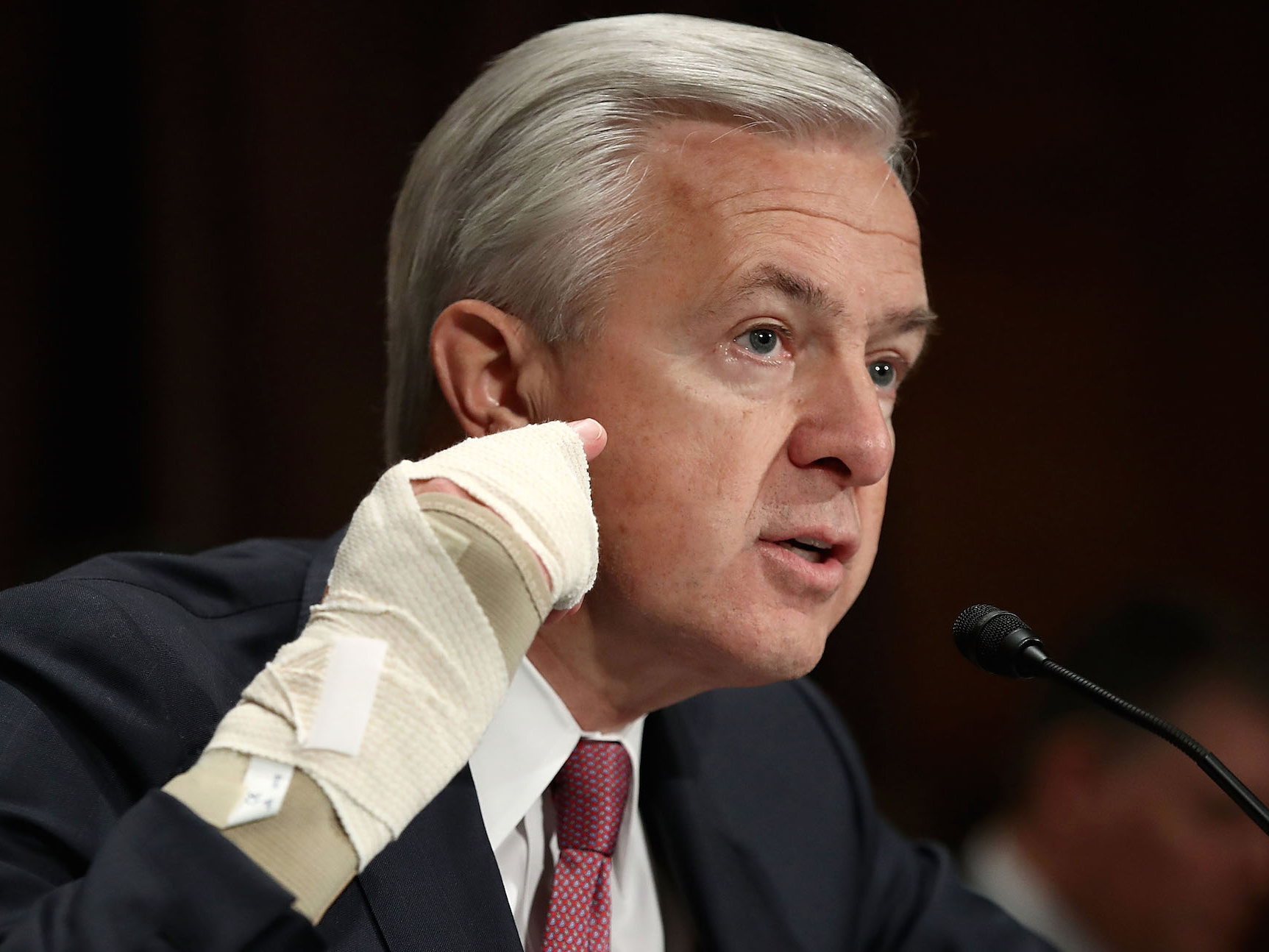If you wonder why Congress has an approval rating of only 18%, you clearly did not watch today’s Senate Banking Committee hearing on C-SPAN.
For nearly 3 hours, members of the Senate Banking Committee took turns feigning shock and anger in response to Wells Fargo CEO John Stumpf’s testimony regarding the ongoing fraud scandal at the nation’s third largest bank.
Don’t get me wrong, Stumpf rightly deserves to be hauled before Congress and explain the bank’s actions. Last week, Wells Fargo announced that it had agreed to pay penalties totaling $185 million to the Consumer Financial Protection Bureau, the Office of the Comptroller of the Currency and to Los Angeles City and County officials as a result of the fraudulent scheme. Since at least 2011, bank employees have opened approximately 1.5 million bank accounts and 565,000 credit card accounts without customer authorization. The reason? In order to meet sales targets and earn hefty bonuses.
Fraud in the banking sector? I’m shocked. Who could have imagined that the same people who brought you the 2008 financial crisis would consider deceiving customers in an effort to increase their own compensation? Apparently, the members of the Senate Banking Committee have trouble wrapping their heads around that one. Each of them took turns this morning reading prepared sound-bites for their re-election campaigns. Some of my favorites:
- Sen. Sherrod Brown (D-OH) – “This was not a mix-up under the Christmas tree. This was fraud, fraud that you did not find, or fraud that you did not fix quick enough.” Sen. Richard Shelby (R – AL) – “I’ve often said that banking is based on trust, and trust was broken at Wells Fargo.” Sen. Robert Mendez (D-NJ) – “This isn’t the work of 5,300 bad apples, this is the work of sowing seeds that poisoned the orchard.”
The award for best sound-bites at the hearing, however, clearly goes to Senator Elizabeth Warren (D-MA). The people’s champion of “Banks Are Bad”, took the opportunity to strengthen her case for a potential cabinet position in a Clinton White House. In a bizarre exchange during which Warren asked questions of Stumpf and then read prepared remarks to his responses, Warren berated Stumpf and stated “evidently your definition of ‘accountable’ is to push the blame to your low-level employees who don’t have money for a fancy PR firm to defend themselves. It’s gutless leadership.”

Don't get me wrong, from what we know to date about what happened at Wells Fargo, the bank epitomizes moral bankruptcy. From the board of directors all the way down to the lower-level employees who actually perpetrated the fraud, there was a massive breakdown in compliance and ethics. The bank's ability to regain its reputation will be based solely upon its handling of this matter going forward. A thorough and transparent investigation needs to take place and individuals need to be held accountable.
But Wells Fargo is not alone. Failures in corporate governance are a major issue in the United States - not just in the banking sector, but across almost all sectors. The U.S Government, and most notably Congress, have failed to put in place the measures needed to strengthen corporate governance and protect the average investor and employee. After Enron, there was Sarbanes-Oxley. After the 2008 financial crisis, there was Dodd-Frank. Yet, corporate governance failures, such as that which has occurred at Wells Fargo, persist.
Here's the truth: there is no law or regulation which is going to completely eradicate corporate scandals. Corporations are managed and overseen by people - a certain percentage of which, under certain circumstances, will always take the short-cut. Nevertheless, there are actions which can be taken to discourage such behavior and limit the impact when it occurs. At a minimum, there has to be stronger laws and regulations designed to: (1) hold individuals accountable; (2) foster the adoption of robust corporate compliance programs; and (3) encourage and protect whistleblowers.
Senator Warren did acknowledge at the hearing that "we need tough new laws to hold corporate executives personally accountable". So where are they? Granted the passage of such legislation won't provide members of Congress with the same great sound-bite opportunities as a fully choreographed Senate hearing, but it may go a long way to protecting the American people.
Gutless leadership, indeed.
Mark Rogers is the founder and CEO of BoardProspects.com.


